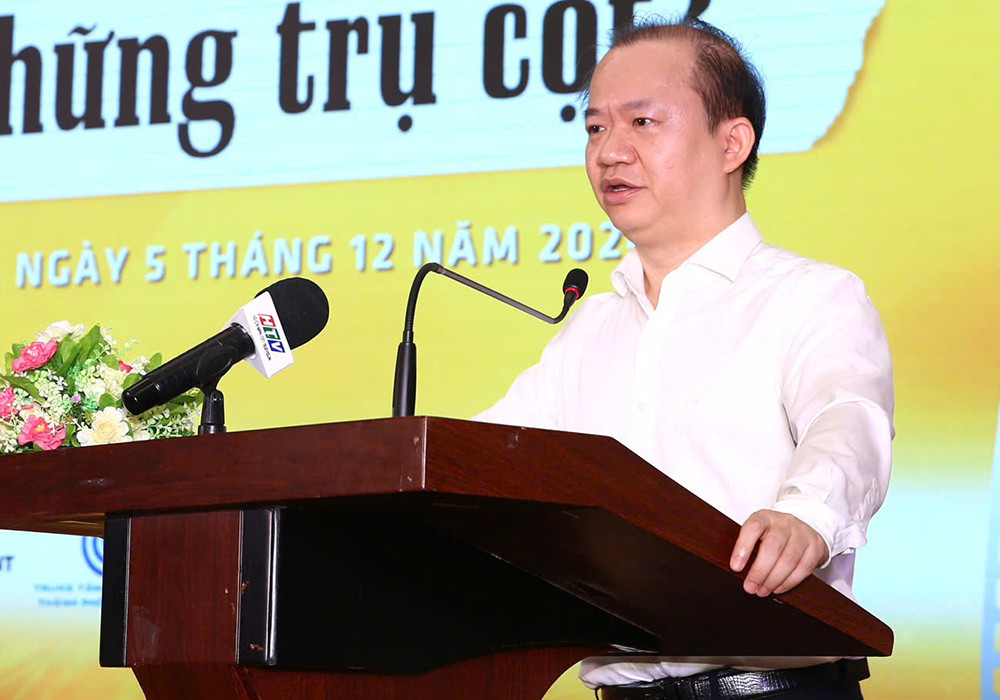
A seminar discussing the solutions to develop cultural industry was recently held in HCM City.
Son, the permanent member of the National Assembly's Committee for Culture and Education, asserted that HCM City is the largest cultural industry market in the country, and that institutional regime, infrastructure, and people are the three most important factors to develop the industry.
He said development entails making cultural products develop more professionally and align with market principles. People must be placed at the center, while the industry must be part of the country’s development.
Son cited the example of the Singaporean Minister of Culture leading a delegation to Los Angeles to meet with event organizers and invite Taylor Swift to Singapore to organize concerts. This helped create significant economic and social effects.
To Dinh Tuan, Editor-in-Chief of Nguoi Lao Dong Newspaper, said the profits from cultural industry have become a spearhead in some countries. The BTS girl band, for example, brings $5 billion annually to South Korea's economy.
Vietnam's population is larger than South Korea's, and Vietnamese culture also has great potential, no less than that of its neighbor, he said. However, Vietnam still doesn’t have significant projects and activities that bring long-term growth to society.
Nguyen Ngoc Hoi, Deputy Director of the HCM City Department of Information and Communications, said Vietnam needs a long-term strategy to develop a cultural industry, in which media can play an important role.
Hoi said HCM City is going to make a proposal to build the city's brand and image through cultural products. The common goal of management agencies is to elevate the culture and introduce it to the world.
The city plans to organize one event or cultural product at least each month, contributing to the city’s social, economic and tourism development.
When cultural industry becomes the "lighthouse”
Director Le Quy Duong emphasized that the institutional regime must be the first pillar. For many years, organizations and units developed culture as a movement rather than a cultural lifestyle, and he believes that this is unsuitable for the current cultural industry.
The allocation of cultural funds in some areas has been inappropriate, leading to inefficient activities that do not help boost the industry's growth.
Duong said in Australia the government provides equal opportunities for individuals and units to develop. Theaters attend bids and register projects set annually by competent authorities. This creates a transparent environment, gives space to artistic teams' creative potential, and uncovers talented people for cultural activity.
Film Director Nguyen Quang Dung expressed concern about future generations, saying that young people need favorable conditions to study, practice and be trained. They should be given opportunities to learn and work in international environments.
While South Korea's film industry is miles ahead of Vietnam's, Nguyen Quang Dung suggests looking to Thailand. Thailand has open policies welcoming international film crews, offering maximum support regarding policies, taxes, transportation and settings, facilitating project completion.
Creating an open mechanism is an effective solution to attract foreign film crews to Vietnam, which can serve as opportunities to interact and learn from them.
Analysts said poor infrastructure and unreasonable policies are the barriers that hinder cultural development. Pham Dinh Tam from IME Vietnam, which invited BlackPink to perform in Vietnam, complained that Vietnam's required procedures are too complex, which is cumbersome for event organizers.
The poor infrastructure and the lack of well equipped locations for performance is believed to be a problem that causes foreign organizers and artists to hesitate to choose HCMC as a destination.
Most of the places for shows were built 20 years ago and the facilities have degraded, while the requirements of international stars have increased.
Son made four proposals to develop a cultural industry. First, Vietnam should pay more attention to art education. Second, it is necessary to build brands for businesses and localities. Third, use new technologies to improve the quality of cultural products. Fourth, invest in education and media to attract attention to the cultural industry.
Tuan Chieu